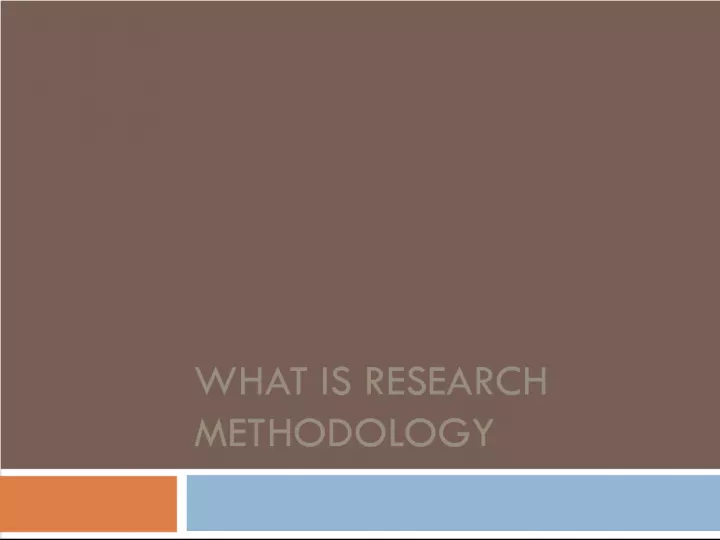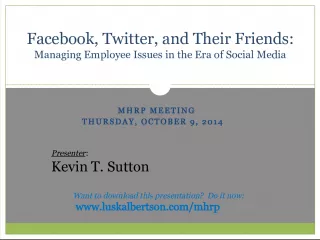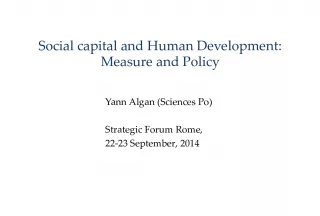Understanding the Persuasive and Political Nature of Social Research Methodology


This seminar topic from Clough and Nutbrown's Chapter 1 delves into the various aspects of social research methodology, specifically examining its persuasive and political nature.
- Uploaded on | 3 Views
-
 heather
heather
About Understanding the Persuasive and Political Nature of Social Research Methodology
PowerPoint presentation about 'Understanding the Persuasive and Political Nature of Social Research Methodology'. This presentation describes the topic on This seminar topic from Clough and Nutbrown's Chapter 1 delves into the various aspects of social research methodology, specifically examining its persuasive and political nature.. The key topics included in this slideshow are . Download this presentation absolutely free.
Presentation Transcript
Slide1WHAT IS RESEARCHMETHODOLOGY
Slide2What is Research? “All social research sets out with specific purposes from a particular position , and aims to persuade readers of the significance of its claims; these claims are always broadly political .”
Slide3Seminar topics from Clough &Nutbrown, Chapter 1 Explain the ways in which social research is: Persuasive (intention) Purposive Positional (perspective) Political (impact: policy context)
Slide4Simply said Research is the systematic process of collecting and analysing information (data) in order to increase our understanding of the phenomenon with which we are concerned or interested. Often uncritically polarized: qualitative or quantitative research paradigms Approaches to research: normative, interpretive, and critical paradigms (p. 17)
Slide5Additional notes on Social Research It is research involving social scientific methods, theories and concepts, which can enhance our understanding of the social processes and problems encountered by individuals and groups in society. It is conducted by sociologists, psychologists, economists, political scientists and anthropologists. It is not just common sense, based on facts without theory, using personal life experience or perpetuating media myths.
Slide6Different Purposes of Research (1) Exploratory Goal is to generate many ideas. Develop tentative theories and conjectures. Become familiar with the basic facts, people and concerns involved. Formulate questions and refine issues for future research. Used when little is written on an issue. It is the initial research. Usually qualitative research.
Slide7Descriptive research Presents a profile of a group or describes a process, mechanism or relationship or presents basic background information or a context. Used very often in applied research. E.g.: General Household survey – describes demographic characteristics, economic factors and social trends. Can be used to monitor changes in family structure and household composition. Can also be used to gain an insight into the changing social and economic circumstances of population groups. Often survey research.
Slide8Analytical (or explanatory) goes beyond simple description to model empirically the social phenomena under investigation. It involves theory testing or elaboration of a theory. Used mostly in basic research.
Slide9Evaluation characterised by the focus on collecting data to ascertain the effects of some form of planned change. Used in applied research to evaluate a policy initiative or social programme to determine if it is working. Can be small or large scale, e.g.: effectiveness of a crime prevention programme in a local housing estate.























